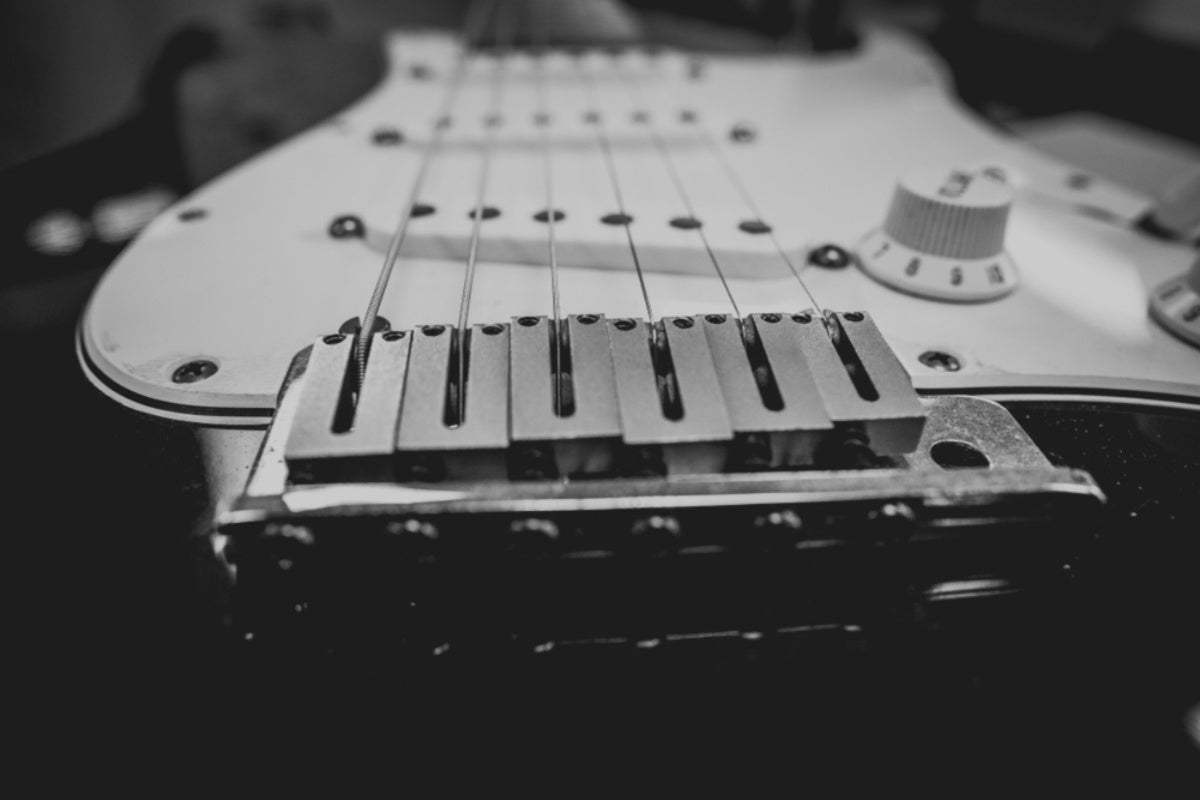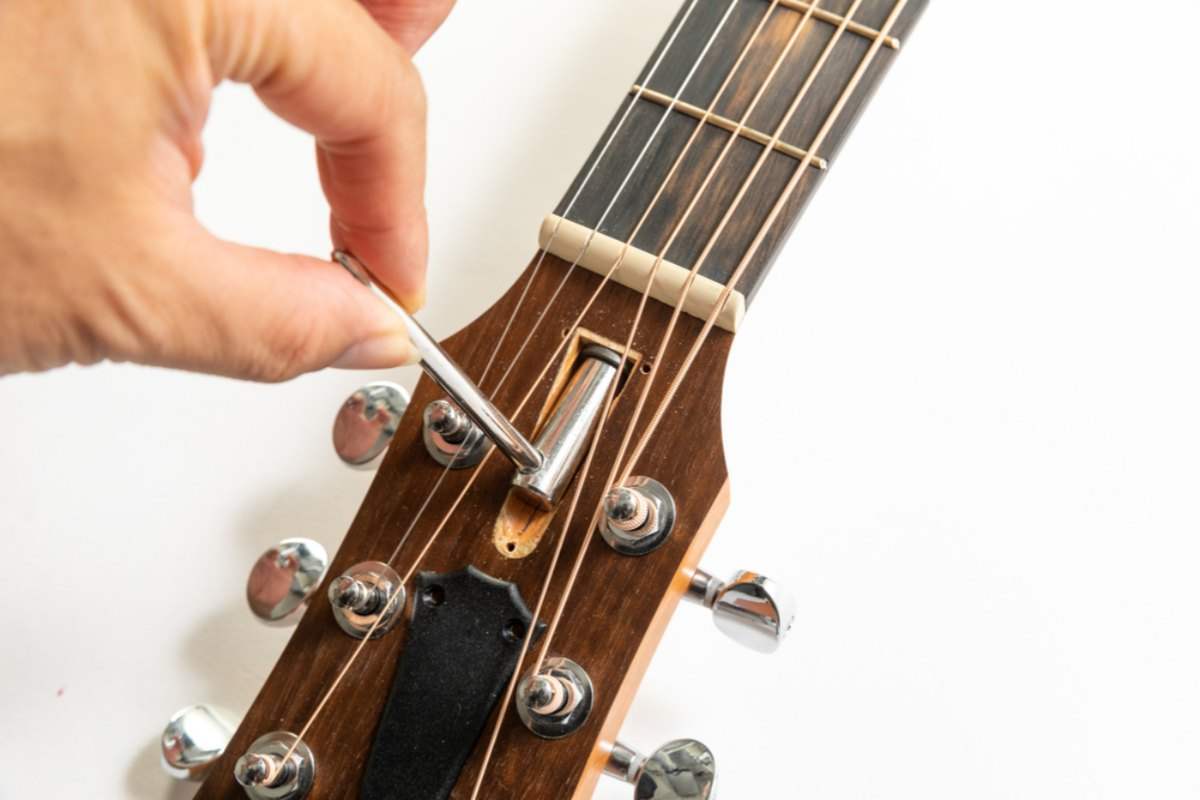The story behind this piece dates back to my days working at a Fender dealership. One fine afternoon, a Fender Esquire Custom Shop landed in my hands, and I got curious about what can a 3-way switch do in a 1-pickup guitar.
When I flicked it to the center position, with the tone knob out of the circuit, the guitar suddenly became livelier. That got me thinking about what potentiometers do. Moreover, I was left with the question “What does a potentiometer do in a circuit?”
Well, if you happen to have the same doubts I had, I’m going to take all the info given to me by Fender Masterbuilders and pass it on to you. I’ll go through everything, from understanding potentiometers to the best uses for potentiometers from a performance perspective.
Do Potentiometers Really Matter?
That afternoon, when I picked up the Esquire, I learned a lot about guitar electronics. Yes, it seems kind of odd that one of the simplest guitars in the world could teach me so much.
I had the usual doubts about how do potentiometers work. But since a potentiometer can also affect and control volume or tone, all I knew was as a player. I could get different tones from the guitar, tweaking the knobs but couldn’t answer the basics like, is a potentiometer a resistor? Or does a potentiometer reduce voltage? In case you’re wondering, scratching your head with a pick, the answer to both questions is yes.
I put together this piece so fellow guitarists know their way around this subject and can make the best decisions based on their playing style and taste.
Welcome to the potentiometer, explained
The No-Pots Experiment
After that first Esquire-middle-position experience, I was hooked. I mean, I’m a tele guy, I’ve been one for the past decade and I had never experienced that rawness and power from a neck pickup. Could a potentiometer really make such a difference?
Well, I did what I always do; go full-in. So, I took my favorite experiment guitar, a Mustang copy a friend made me, and wired the bridge pickup straight to the output jack. No volume or tone pot in the way.
The result? A ferocious beast ready to take on the whole world and then some. The thing is that my Mustang has a maple neck and fretboard, therefore, it’s quite hard taming those highs with no pots.
So, I decided to rewire it the traditional way and that’s where I encountered more problems. Questions like, does a potentiometer need to be grounded? Or do potentiometers have polarity? Came to mind. The answers are yes and no in this case, by the way.
But that hiatus gave way to the next thing I did.
Do Volume Pots Make a Difference?
Instead of putting my guitar together right away, I decided to do some experiments. The first thing I did was try pots with different values to see if they made a difference in tone and performance.
Indeed, one of the key things to having potentiometers explained is understanding what their values mean. I don’t want to give up a scoop too soon, but understanding this helped me a lot as a salesman and a musician.
From 1 Meg to 100K
Let’s get into potentiometer math, so grab a calculator and a notepad.
Don’t panic, I’m just kidding. Having potentiometer values explained doesn’t require any mathematical knowledge except knowing the difference between 100 and 1000. But you already do, otherwise, you’d be, at least broke by now.
But back to the experiment, the first thing you need to start paying attention to is what do potentiometers measure and how they react with sound, gain, and tone.
I went from a 1 Meg potentiometer all the way to a 100 K potentiometer. Let me tell you that, after that experiment, I can now affirm that the answer to the question “Does potentiometer resistance matter?” is, absolutely!
What I found out is that, as you move from 1 Meg to 100 K, the guitar gets darker and warmer. If you move in the opposite direction, you’ll get the opposite result; your guitar will get brighter.
This was such a great discovery because I changed the neck pickup pot from 250 to 500 K and the pickup became brighter and livelier. The bridge pickup could use a little taming on the highs, so I went from 250 to 100 K on it, and it became warmer and used a two-volume-no-tone configuration.
I used tone values to shape my guitar sound.
Later, as I continued to sell guitars, we would have a Les Paul with a muddy neck pickup, for example. It was difficult to sell because of that tone. I couldn’t swap pickups, but I would change the volume pot from a 500 K to a 1 Meg pot and the guitar came to life. That was, of course, for a fraction of the price of swapping pickups.
Let’s Talk About Reliability
But tone isn’t the only thing that good pots can give you. There’s also the reliability issue. Because, if you ask me, do potentiometers go bad? My answer would be: “Absolutely!”
How do potentiometers fail? Well, you can have a faulty potentiometer that’s stuck in a setting, noisy, or that can do some potentiometer jumping. This means going from the selected value to 10 or 0 without you even touching it.
In my experience, buying good-quality pots can enhance their working life and give you years of silent magic. On the other hand, cheap parts (not just talking about the price) tend to fall apart faster and easier.
So, if you have a low or mid-tier guitar and you want to make it sound and perform better, I suggest you spend a few bucks and update the electronics in it.
Results just might surprise you.
Conclusion, Is It Worth It Upgrading Your Pots?
A potentiometer is most closely associated with a detail. Most manufacturers won’t even list in the specs if a guitar has a 500 K or 250 K pot installed. Well, a bad potentiometer can ruin your night on the stage or delay that expensive, sought-after recording session.
Yes, in guitar playing (and mostly in life) your chain is as strong as its weakest link.
So, my suggestion is that you experiment with different potentiometer values until you find the one that suits your playing and instrument the best. It’s an inexpensive, easy-to-perform mod that can make you love that guitar even more.
Happy playing (with the right pots)!
If you like this article, please share it!
Be sure to join our FB Group Guyker Guitar Parts & Accessories Community to share your ideas! You can also have connections with like-minded guitar players, Guyker updates as well as discounts information from our FB Group.





